The landscape of content creation is undergoing a significant transformation with the advent of AI technology. As we approach May 2025, it’s clear that these tools have become indispensable for creators across various disciplines. The rapid evolution of AI technology has made it essential for content creators to stay updated to maintain competitiveness in the digital space.
As AI continues to advance, it offers a balance between human creativity and machine assistance, enhancing the overall quality and efficiency of content production. This guide will explore the most critical AI tools that content creators should leverage in 2025 to save time, improve quality, and boost creativity.
- The Evolution of Content Creation Technology
- Why AI Tools Are Transforming Content Creation in 2025
- AI Writing Assistants for Faster Content Production
- Visual Content Creation with AI
- Audio and Podcast Enhancement Tools
- Content Research and Data Analysis AI
- SEO Optimization Tools Powered by AI
- AI-Powered Content Distribution Platforms
- Personalization and Audience Analysis Tools
- Content Translation and Localization AI
- AI Tools for Content Monetization
- Content Performance Analytics AI
- AI-Enhanced Content Collaboration Tools
- Ethical Considerations in AI Content Creation
- Integrating Multiple AI Tools into Your Workflow
- Future Trends in AI Content Creation Technology
- Conclusion
- FAQ
- What are the benefits of using AI tools in content creation?
- How do AI writing assistants like GPT-5 work?
- What are the applications of AI image generators in content creation?
- How can AI-powered SEO optimization tools improve content ranking?
- What are the advantages of using AI-powered content distribution platforms?
- How do AI content personalization engines work?
- What are the ethical considerations when using AI in content creation?
- How can AI tools be integrated into existing content workflows?
- What are the future trends in AI content creation technology?
- How can AI enhance content collaboration and workflow optimization?
- What is the role of AI in content monetization?
- How do AI-powered content performance analytics work?
Key Takeaways
- Essential AI tools for content creators in 2025
- The role of AI in enhancing content quality and efficiency
- How to balance human creativity with AI assistance
- The importance of staying updated with the latest AI technology
- Statistics on AI tool adoption among content creators as of May 2025
The Evolution of Content Creation Technology
The rapid advancement in technology over the last decade has transformed the content creation landscape. Technology has enabled the development of sophisticated AI systems, revolutionizing the way content is created.
The transition from manual content creation to AI-assisted workflows has significantly compressed production time frames.
| Year | Content Creation Technology | Impact |
|---|---|---|
| 2015 | Basic word processors and manual editing | Time-consuming and labor-intensive |
| 2020 | Introduction of AI-assisted tools | Improved efficiency and quality |
| 2025 | Advanced AI systems and cloud computing | Dramatic reduction in production time and enhanced creativity |
The intersection of technology and innovation has democratized content creation, making professional-grade tools accessible to a wider audience.
Why AI Tools Are Transforming Content Creation in 2025
In May 2025, the role of AI in content creation has become more pronounced than ever. The maturity of AI technology has reached a point where it genuinely enhances rather than replaces human creativity.
The fundamental reasons behind the indispensability of AI tools for content creators include:
- Economic factors driving AI tool adoption, such as cost efficiency and resource optimization.
- Audience expectations for high-quality content at an increased frequency, necessitating AI assistance.
- The ability of AI tools to help creators stay relevant in a saturated digital landscape.
The competitive advantage gained by leveraging AI effectively is significant. Early adopters have reported substantial productivity gains. AI is also helping creators break news and stay ahead of trends more effectively.
Global factors are influencing AI tool development, with Indian content creators being uniquely positioned to benefit from these advancements. As AI continues to evolve, it’s clear that technology will play a crucial role in shaping the future of content creation, especially in breaking news.
AI Writing Assistants for Faster Content Production
The advent of AI writing assistants is transforming the content creation landscape in 2025. These tools are revolutionizing the way content is produced, making it faster and more efficient.
AI writing assistants are not just improving content production speed; they are also enhancing quality. With advanced language models like GPT-5, content creators can produce high-quality content that resonates with their audience.
GPT-5 and Advanced Language Models
GPT-5 represents a significant leap forward in AI writing technology. Its capabilities include improved context understanding and more nuanced language generation, making it an invaluable tool for content creators.
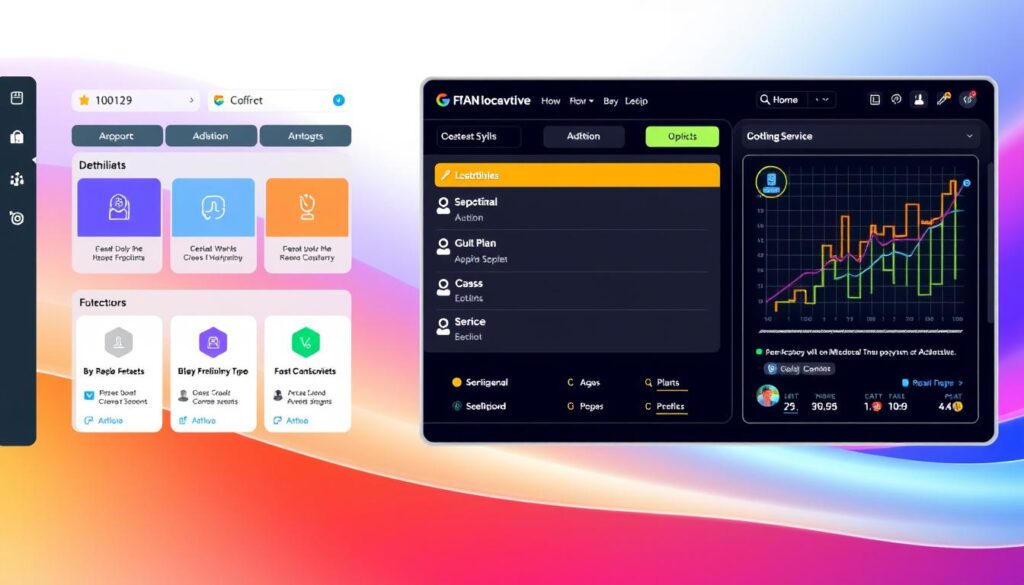
Specialized Content Generation Tools
Specialized AI writing tools are designed for specific content formats, such as blogs, social media, and technical writing. These tools are being customized for different industries and content niches as of May 2025, leveraging the latest advancements in technology.
By integrating these tools with existing content management systems, content creators can achieve seamless workflows. The balance between AI-generated drafts and human refinement is crucial in professional content creation, ensuring that the final product is both efficient and high-quality.
The use of AI writing assistants is not limited to draft generation; they are also being used to analyze and improve content performance. As the technology continues to evolve, we can expect to see even more sophisticated AI writing tools emerging in the coming months.
Visual Content Creation with AI
The rise of AI in visual content creation is revolutionizing how digital creators produce engaging media in 2025. This technological advancement is not only enhancing the quality of visuals but also streamlining the production process.
AI Image Generators
AI image generators are transforming the way we create visual content. Tools like Midjourney and DALL-E are leveraging advanced neural networks to produce high-quality images.
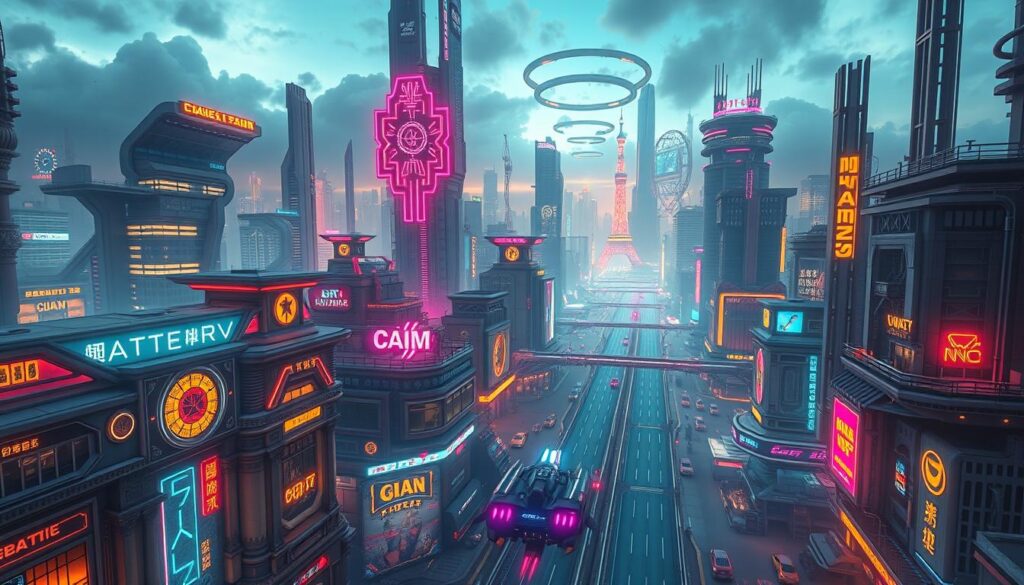
Video Creation and Editing AI Tools
AI is also making significant inroads in video creation and editing. Tools such as Lumen5 and InVideo are using AI to automate video editing, making it easier for creators to produce professional-quality videos.

The science behind these AI tools is rooted in complex neural networks that enable them to learn and adapt. As this technology continues to evolve, we can expect even more sophisticated visual content creation tools.
Audio and Podcast Enhancement Tools
In 2025, content creators are leveraging AI tools to elevate their audio and podcast productions to new heights. These advanced technologies are revolutionizing the way audio content is created, edited, and distributed.
Advanced Voice Synthesis Technologies
AI voice synthesis tools are enabling creators to produce high-quality, natural-sounding narration for their audio content. This technology is particularly useful for generating voice-overs for podcasts, audiobooks, and video content.
The use of AI voice synthesis significantly reduces production time and costs associated with hiring voice actors. Moreover, it allows for consistent audio branding across different content pieces.
Podcast Editing AI Systems
AI-powered podcast editing software is automating time-consuming post-production tasks such as noise reduction, audio normalization, and content optimization. These AI systems enhance audio quality, ensuring a professional listening experience.
By leveraging AI podcast editing software, creators can focus on content creation while the technology handles the technical aspects of audio enhancement. This results in higher quality audio content that engages listeners.
The integration of AI in audio and podcast enhancement is not only improving production quality but also democratizing access to high-quality audio production tools for creators with limited resources. As AI technology continues to evolve, we can expect even more innovative applications in the field of audio content creation.
Content Research and Data Analysis AI
As we approach May 2025, content creators are leveraging AI tools to revolutionize their research and data analysis processes. AI technology is transforming the way creators gather insights, identify trends, and analyze competitor strategies.
Trend Analysis Tools
AI-powered trend analysis tools help content creators stay ahead of emerging topics in their niche. These tools analyze vast amounts of data to identify patterns and predict future trends, enabling creators to develop timely and relevant content.
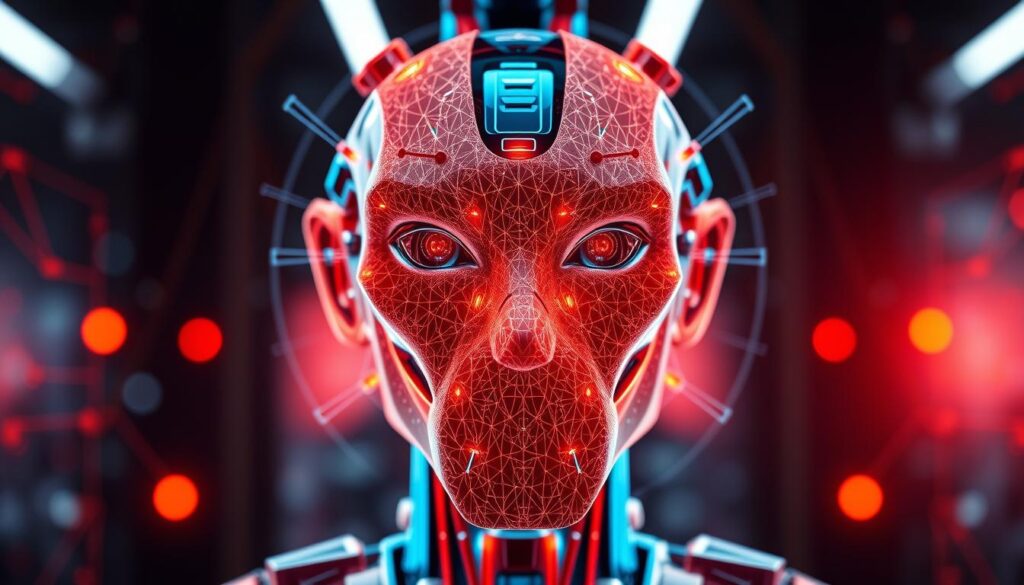
Competitive Research AI Assistants
AI-driven competitive research assistants provide actionable insights about competitor content strategies. By analyzing competitor data, creators can identify gaps in the market and opportunities to differentiate their content.
The integration of AI in content research and data analysis is reducing the time spent on preliminary content planning. Leading content creators are using these tools to inform their content calendars and strategic decisions. The technology behind natural language processing enables sophisticated content analysis, allowing for more accurate and insightful research.
Different AI research platforms are being compared based on accuracy, depth of analysis, and user experience. These tools can be customized for specific industries and content types, making them versatile and valuable for a wide range of creators. Moreover, AI research tools are integrating with other content creation systems for streamlined workflows, further enhancing their utility.
SEO Optimization Tools Powered by AI
As we dive into 2025, AI-powered SEO optimization tools are revolutionizing the way content creators approach search engine ranking. These tools are not only enhancing the efficiency of SEO processes but also improving the accuracy of search engine rankings.
Keyword Research and Analysis
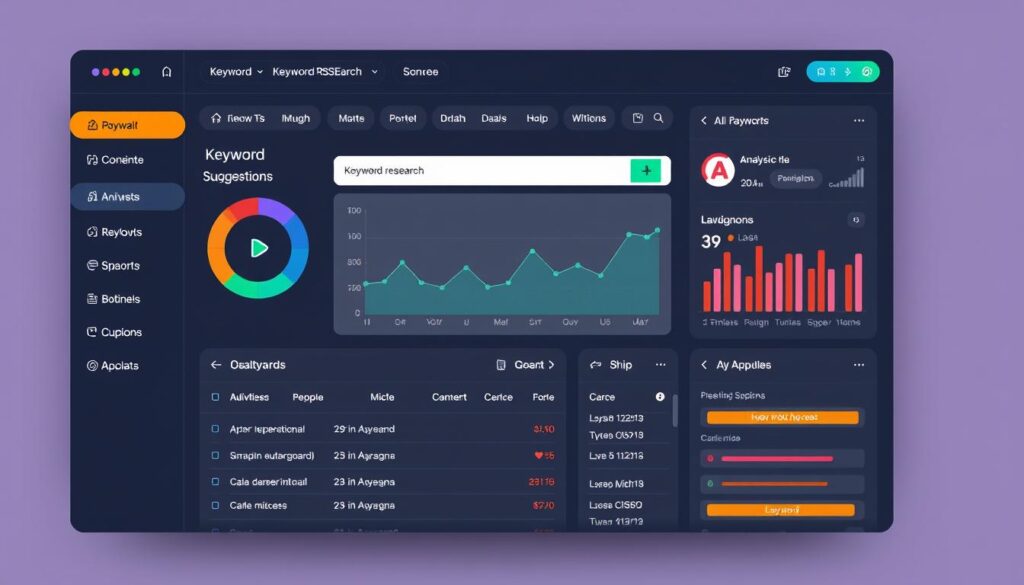
AI SEO keyword research tools are identifying high-potential search terms with precision, leveraging technology to analyze vast datasets. This enables content creators to target their content more effectively.
Content Optimization Assistants
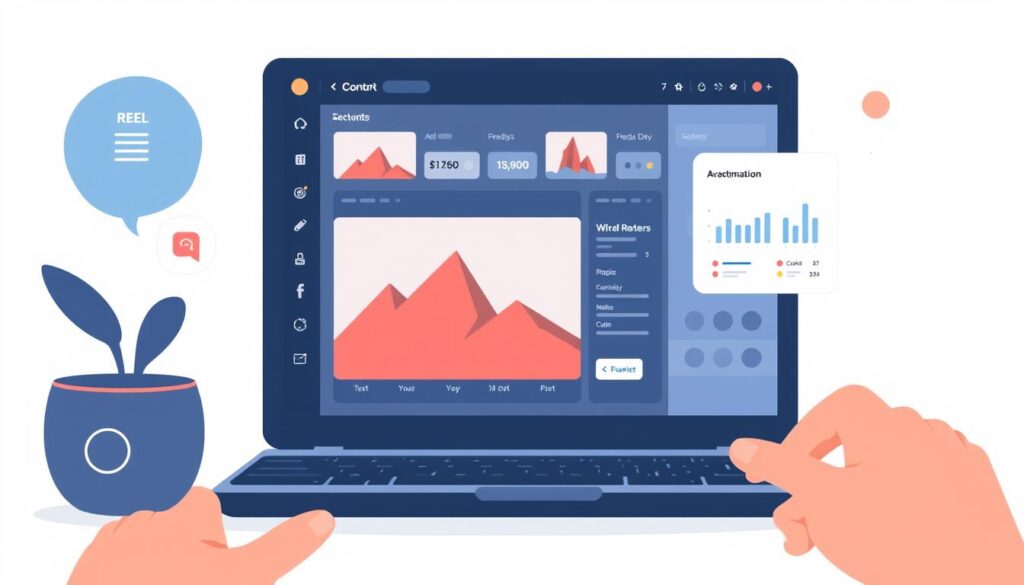
AI content optimization tools provide real-time suggestions for improving search visibility, applying science to predict search engine algorithm preferences. This helps content creators adapt their strategies to achieve better rankings.
The integration of AI in SEO optimization is reducing the technical knowledge barrier for content creators, making it easier for them to produce optimized content. By balancing optimization for search engines with natural, engaging content, these tools are revolutionizing the SEO landscape.
AI-Powered Content Distribution Platforms
The integration of AI in content distribution platforms is marking a new era for creators, enhancing their ability to reach target audiences in May 2025. These platforms are transforming how content is distributed across various channels.
Social Media Management AI
AI social media management tools optimize posting schedules and content formats for maximum engagement. They analyze audience behavior and adjust content delivery accordingly.
Email Marketing AI Tools
AI email marketing tools personalize content delivery based on recipient behavior patterns. This leads to higher open rates and more effective campaigns.
These AI-powered distribution platforms use predictive technology to identify optimal publishing windows and enable more sophisticated audience segmentation for targeted content delivery.
Leading content creators are using these tools to increase reach and engagement metrics, maintaining a consistent presence across multiple platforms.
Personalization and Audience Analysis Tools
The landscape of content creation is being reshaped by personalization and audience analysis tools powered by AI. These technologies are enabling content creators to deliver highly relevant experiences to their audiences, significantly enhancing engagement and loyalty.
User Behavior Analysis AI
AI-driven user behavior analysis tools are capable of identifying complex patterns and preferences in audience interactions. This information allows content creators to tailor their content more effectively.
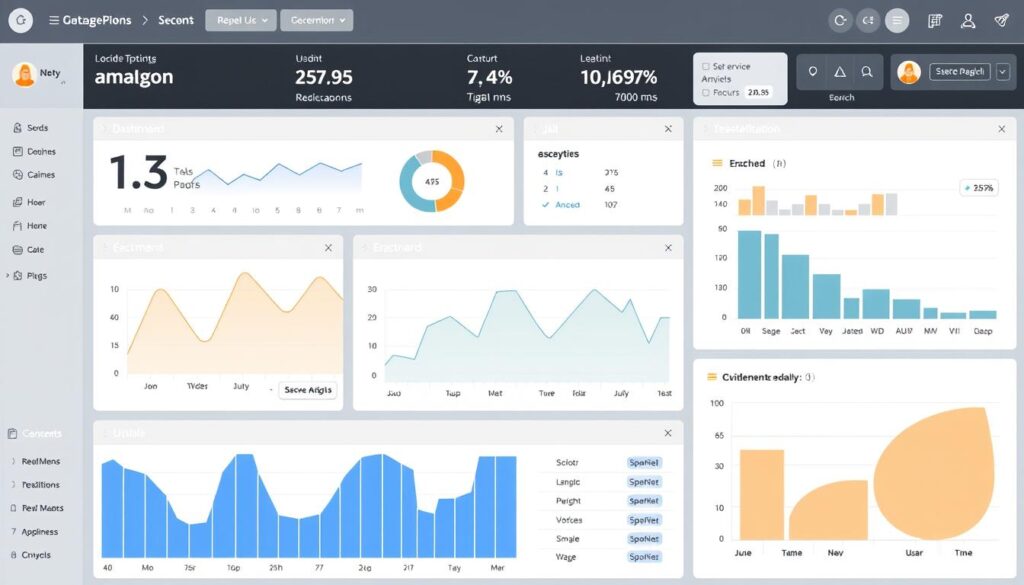
Content Personalization Engines
Content personalization engines dynamically adjust content based on individual user profiles, ensuring that each audience member receives relevant content. This technology is revolutionizing the way content is consumed and interacted with.
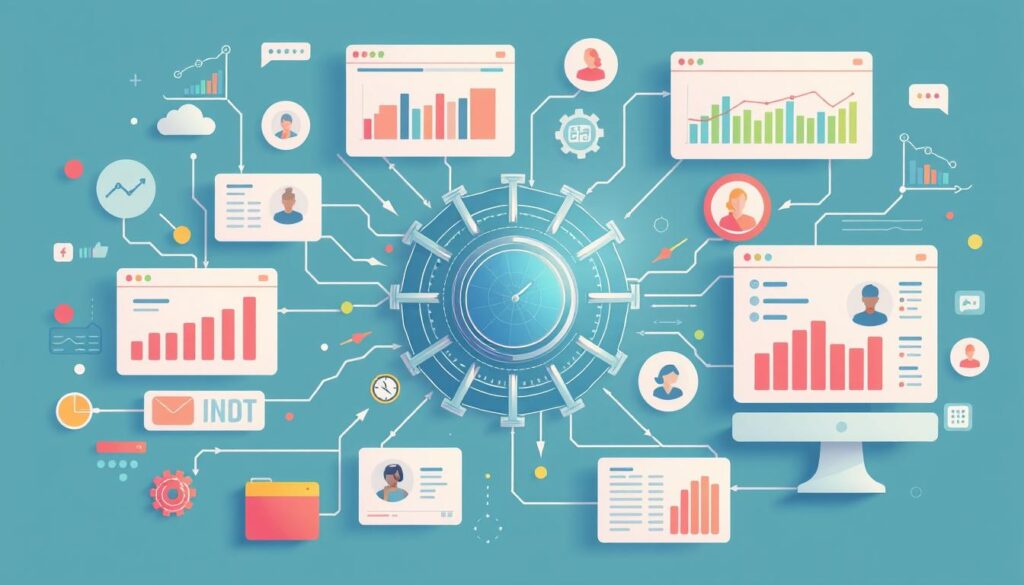
These AI tools are not only improving audience engagement but also helping content creators develop deeper relationships with their audiences through relevance. As technology continues to evolve, we can expect to see even more sophisticated personalization capabilities emerging by the end of 2025.
The intersection of technology and personalization is enabling real-time content customization at scale. This means that content creators can now deliver personalized experiences to a large audience without compromising on quality or relevance.
Case studies have shown significant improvements in engagement through AI-driven personalization. For instance, a leading media company saw a 30% increase in user engagement after implementing a content personalization engine.
However, it’s crucial to balance personalization with privacy concerns and data protection regulations. Leading personalization platforms are now focusing on integrating robust privacy features to ensure compliance with global data protection laws.
When comparing personalization platforms, factors such as accuracy, scalability, and integration capabilities are key. The most effective platforms are those that can seamlessly integrate with existing content management systems and provide accurate, real-time personalization.
As AI continues to advance, it’s enabling content creators to develop deeper, more meaningful relationships with their audiences. By delivering content that is relevant to individual preferences, creators can foster a more engaged and loyal audience base.
Emerging personalization technologies expected to become mainstream by the end of 2025 include advanced machine learning algorithms that can predict user behavior with high accuracy. These technologies will further enhance the capabilities of content personalization engines.
Content Translation and Localization AI
As global content creation continues to expand, AI-powered translation and localization tools are becoming indispensable for creators targeting diverse linguistic markets. These advanced technologies are not only breaking language barriers but also enabling content creators to efficiently reach wider audiences worldwide.
Real-Time Translation Tools
Real-time translation tools are at the forefront of AI-driven content localization, allowing creators to instantly adapt their content across multiple languages. This technology significantly reduces the time required for international content strategies, making it possible for creators to respond quickly to global trends.

Cultural Adaptation AI
Cultural adaptation AI ensures that content resonates appropriately with different regional audiences by capturing nuances and context in various languages. This advanced technology preserves brand voice and messaging consistency across translations, enhancing the overall effectiveness of global content strategies.

The integration of AI in content translation and localization is revolutionizing the way creators approach global markets. By leveraging these tools, content creators can expand their reach, improve engagement, and maintain consistency across diverse linguistic and cultural landscapes.
AI Tools for Content Monetization
As we approach May 2025, content creators are leveraging AI tools to revolutionize their monetization strategies. These advanced technologies are enabling creators to maximize revenue while maintaining a positive user experience.
Ad Placement Optimization
AI ad placement optimization tools analyze user behavior and content consumption patterns to identify optimal ad placement opportunities. This results in increased revenue for creators while preserving the user experience.

Subscription and Membership Management
AI-powered subscription and membership management tools use predictive analytics to reduce churn and optimize pricing models based on content consumption patterns. This enables creators to develop more sustainable business models.
The use of AI tools for content monetization is transforming the way creators earn revenue from their work. By analyzing user behavior and content consumption patterns, these tools identify optimal monetization opportunities. As a result, creators can maximize revenue while maintaining a positive user experience.
Case studies have demonstrated significant revenue improvements through AI-optimized monetization strategies. For instance, a popular online publisher saw a 25% increase in ad revenue after implementing AI-driven ad placement optimization. Similarly, a subscription-based service reduced churn by 15% using AI-powered predictive analytics.
By leveraging AI technology, content creators can develop more sophisticated pricing models and improve audience satisfaction. As we move towards May 2025, the integration of AI tools for content monetization is expected to become even more prevalent.
Emerging monetization technologies, such as AI-driven dynamic pricing and personalized ad targeting, are expected to gain traction by the end of 2025. These advancements will enable creators to further optimize their monetization strategies and improve revenue.
Content Performance Analytics AI
The landscape of content performance measurement is undergoing a significant transformation with the advent of AI analytics tools. These advanced technologies are enabling content creators to gain deeper insights into their content’s performance, moving beyond traditional metrics to more meaningful audience connections.
Engagement Metrics Analysis
AI content engagement analytics tools are providing creators with a nuanced understanding of how their audience interacts with their content. By analyzing engagement metrics, these tools help identify patterns that would be invisible to manual analysis, allowing for more targeted content strategies.
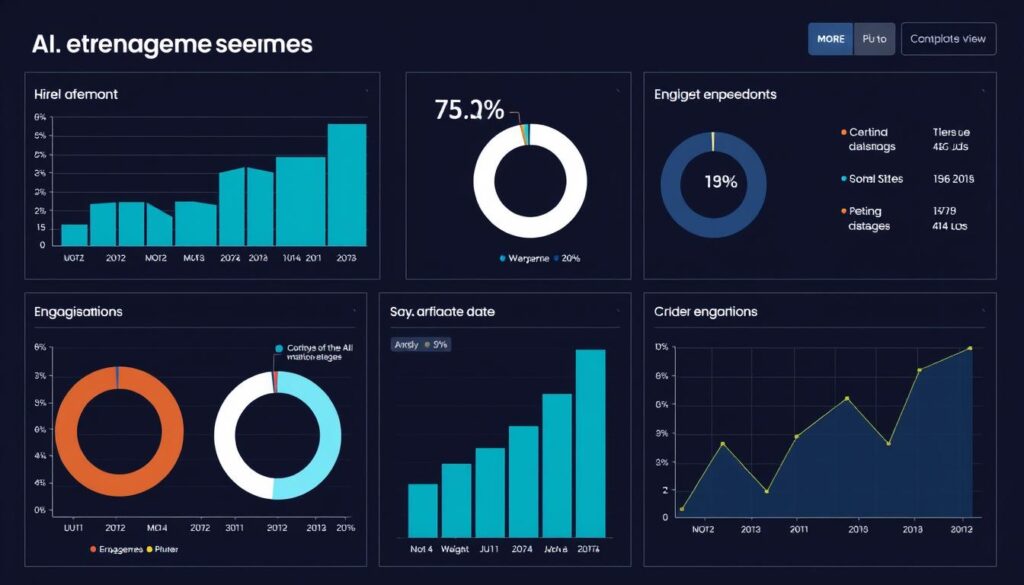
ROI Calculation and Prediction
AI content ROI prediction tools are empowering creators to quantify the business impact of their content. By leveraging AI-driven insights, creators can make informed decisions about future content investments, optimizing their strategies for maximum ROI.
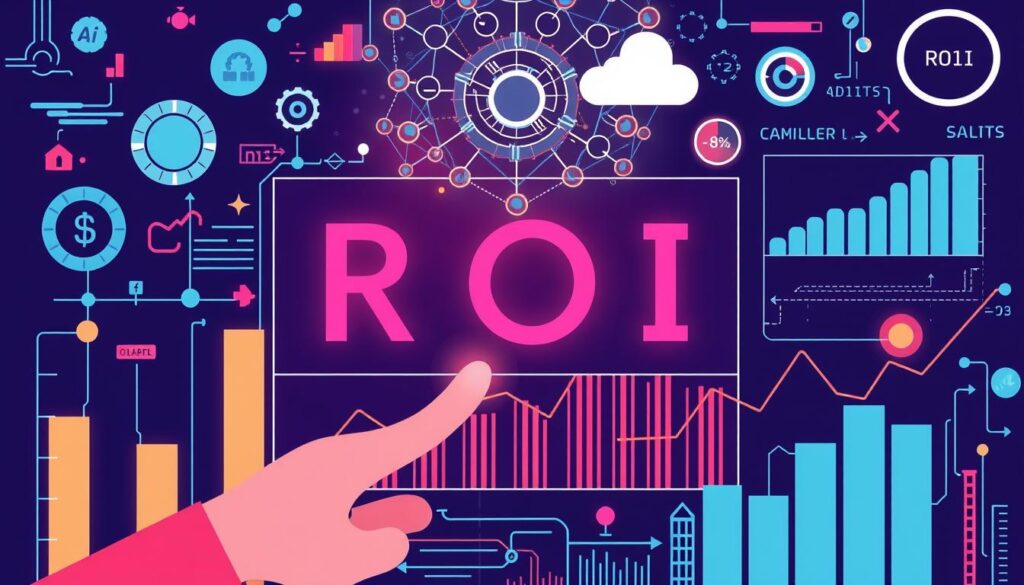
These AI-powered analytics tools are not only enhancing the depth of insights available to creators but are also integrating with content management systems for real-time optimization. As a result, news organizations and content publishers are refining their content strategies, leveraging technology to stay ahead in a competitive landscape.
AI-Enhanced Content Collaboration Tools
AI-enhanced content collaboration tools are revolutionizing team dynamics and productivity in the content creation process. These tools are designed to streamline workflows, improve content quality, and facilitate more effective collaboration among team members.
Team Workflow Optimization
AI team collaboration tools for content creators are being used to optimize workflows, automating routine tasks and allowing teams to focus on high-value tasks. This technology is enabling more agile content production methodologies.
Version Control and Feedback Systems
AI version control tools for content are improving the content review process, making it more transparent and objective. These systems enable real-time feedback and tracking of changes, ensuring that all team members are on the same page.
The integration of AI in content collaboration is significantly enhancing the overall content creation process, from production to distribution. By leveraging these tools, content teams can improve productivity and quality simultaneously.
Ethical Considerations in AI Content Creation

As AI content creation becomes increasingly prevalent, the need to address ethical considerations is more pressing than ever. The use of AI tools in content creation raises several ethical concerns that need to be examined.
Copyright and Ownership Issues
One of the primary ethical concerns is the issue of copyright and ownership of AI-generated content. With AI tools creating content that is often indistinguishable from that created by humans, questions arise about who owns the rights to this content.
Transparency and Disclosure Best Practices
Another crucial aspect is transparency and disclosure. It is essential for content creators to be transparent about their use of AI tools and to disclose this information to their audience when necessary.
The intersection of technology and ethics is shaping industry standards and regulations. Emerging legal frameworks are being developed to govern AI content creation across different jurisdictions.
Leading organizations are adopting different approaches to ethical AI content creation. For instance, some are developing guidelines for the responsible use of AI tools, while others are investing in research to better understand the implications of AI-generated content, driven by advancements in science.
Content creators must consider the ethical implications of using AI tools and develop their own guidelines for usage. This includes being mindful of the potential impact on different content types and industries.
By addressing these ethical considerations, content creators can ensure that the use of AI is both responsible and beneficial to society.
Integrating Multiple AI Tools into Your Workflow
The key to maximizing AI’s potential in content creation lies in effectively combining multiple tools. By integrating various AI technologies, content creators can streamline their workflow, enhance productivity, and produce high-quality content.
Building an AI Tech Stack
To build a customized AI tech stack, start by identifying your specific content creation needs. Consider the types of content you produce, the tasks involved, and where AI can add the most value. Then, select tools that address these needs, ensuring they are compatible and can be integrated seamlessly.
For instance, you might combine an AI writing assistant like GPT-5 with an AI image generator to create comprehensive content packages. The synergy between different AI technologies can significantly enhance your workflow.
Automation and Integration Platforms
Automation and integration platforms play a crucial role in connecting different AI tools. These platforms enable seamless data flow between tools, reducing manual intervention and increasing efficiency. When choosing an integration platform, consider factors such as compatibility, scalability, and ease of use.
Popular integration platforms include Zapier, Integromat, and Automate.io. These platforms support a wide range of AI tools and services, allowing you to create customized workflows that meet your specific needs.
When integrating multiple AI tools, it’s essential to evaluate tool compatibility and consider potential integration challenges. Common issues include data format inconsistencies and API limitations. To overcome these challenges, develop a phased implementation plan, starting with the most critical tools and gradually adding more.
By leveraging the right AI tools and integration platforms, content creators can achieve significant productivity gains and enhance their content quality. The key is to strike a balance between specialized tools and all-in-one platforms, ensuring that your technology stack is both comprehensive and cohesive.
Future Trends in AI Content Creation Technology

Emerging trends in AI technology are set to transform the content creation industry. As we approach May 2025, we can expect significant advancements in AI capabilities.
The integration of energy-efficient AI systems will make advanced content creation tools more accessible to independent creators. This shift is driven by improvements in renewable energy technologies.
Future developments in AI content creation will be influenced by technology advancements, including quantum computing and brain-computer interfaces. These innovations will enable new content formats and experiences.
| Trend | Description | Impact |
|---|---|---|
| Quantum Computing | Enhanced processing power for complex AI models | Revolutionizes AI capabilities |
| Renewable Energy | More sustainable AI content creation | Makes advanced AI accessible to independent creators |
| Brain-Computer Interfaces | New methods for content ideation | Transforms the content creation process |
The future of AI in content creation looks promising, with energy efficiency being a key factor. As these trends continue to evolve, we can expect significant changes in the industry.
Conclusion
As we approach May 2025, AI technology is significantly enhancing content creation. The integration of AI tools represents a paradigm shift, offering unprecedented opportunities for creators. To maximize their potential, it’s crucial to balance AI assistance with human creativity and judgment, ensuring that the unique voice of content creators is maintained.
FAQ
What are the benefits of using AI tools in content creation?
AI tools can significantly enhance content creation by increasing efficiency, improving quality, and enabling personalization, ultimately leading to better engagement and ROI.
How do AI writing assistants like GPT-5 work?
AI writing assistants use advanced language models to generate high-quality content based on input parameters, such as topic, tone, and style, allowing for faster content production.
What are the applications of AI image generators in content creation?
AI image generators can create custom visuals, such as graphics, illustrations, and photos, to enhance content, reduce production costs, and increase visual appeal.
How can AI-powered SEO optimization tools improve content ranking?
AI-powered SEO optimization tools analyze keyword trends, competitor data, and content performance to provide insights and recommendations for improving content ranking and visibility.
What are the advantages of using AI-powered content distribution platforms?
AI-powered content distribution platforms can optimize content delivery, automate social media management, and personalize email marketing campaigns to reach target audiences more effectively.
How do AI content personalization engines work?
AI content personalization engines analyze user behavior, preferences, and interests to deliver tailored content experiences, increasing engagement, and driving conversions.
What are the ethical considerations when using AI in content creation?
Ethical considerations include addressing copyright and ownership issues, ensuring transparency and disclosure, and mitigating potential biases in AI-generated content.
How can AI tools be integrated into existing content workflows?
AI tools can be integrated into existing workflows through automation and integration platforms, allowing for seamless interactions between different tools and systems.
What are the future trends in AI content creation technology?
Future trends include advancements in AI-powered content generation, increased adoption of voice synthesis and cloning, and further integration of AI with other emerging technologies.
How can AI enhance content collaboration and workflow optimization?
AI-enhanced content collaboration tools can optimize team workflows, improve version control, and facilitate feedback systems, leading to more efficient and effective content creation processes.
What is the role of AI in content monetization?
AI can optimize ad placement, manage subscriptions and memberships, and predict revenue streams, enabling content creators to maximize their earnings.
How do AI-powered content performance analytics work?
AI-powered content performance analytics analyze engagement metrics, ROI, and other key performance indicators to provide insights and recommendations for improving content strategy.

